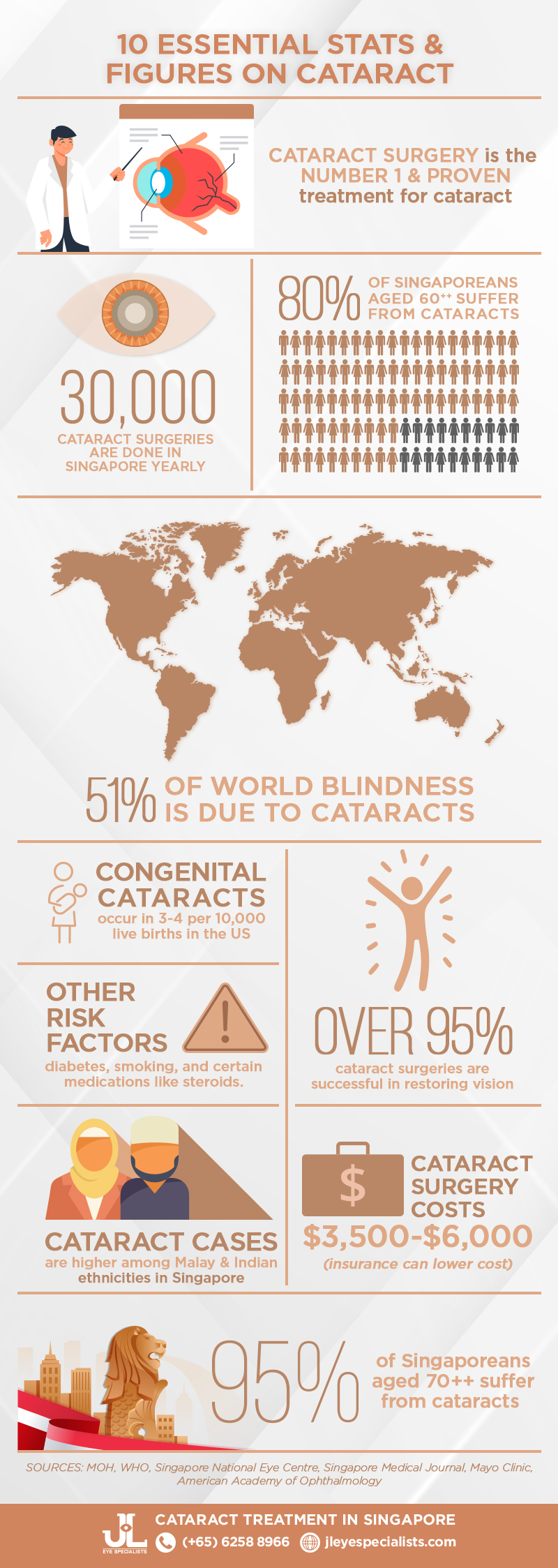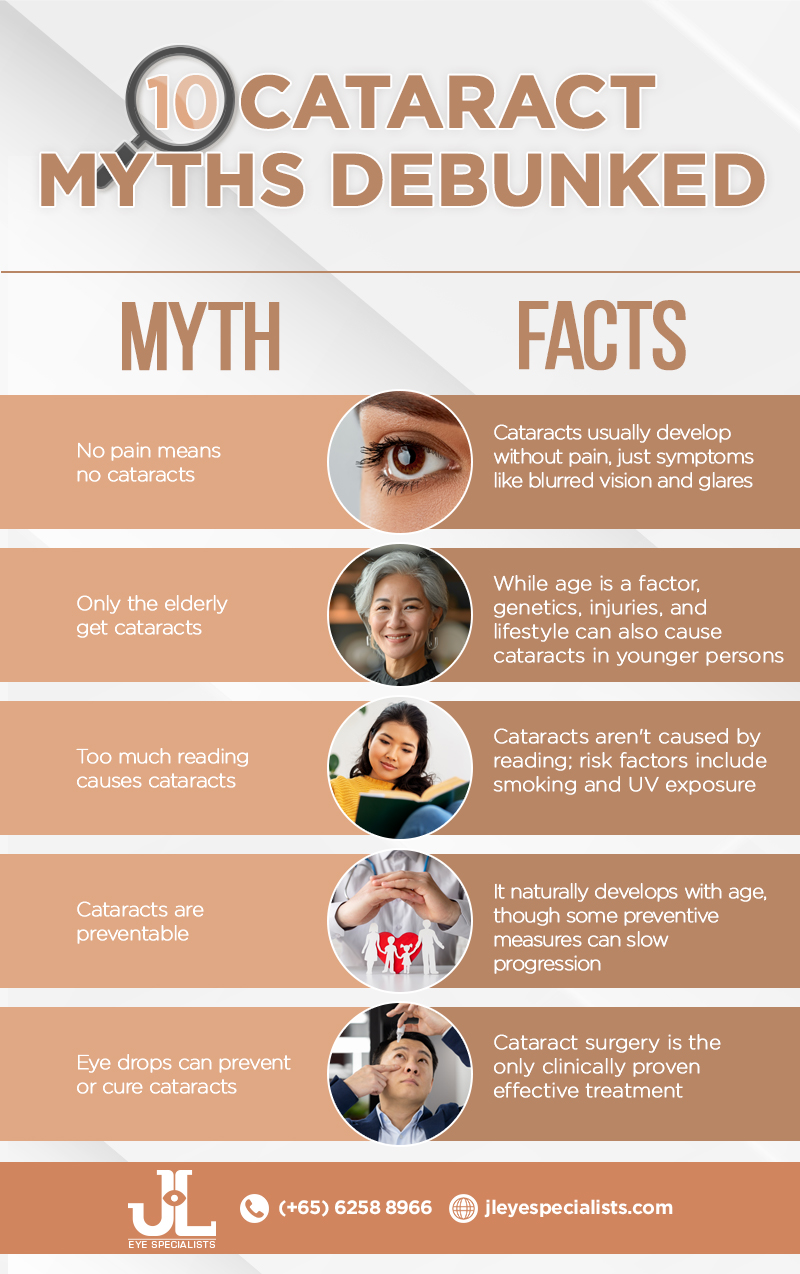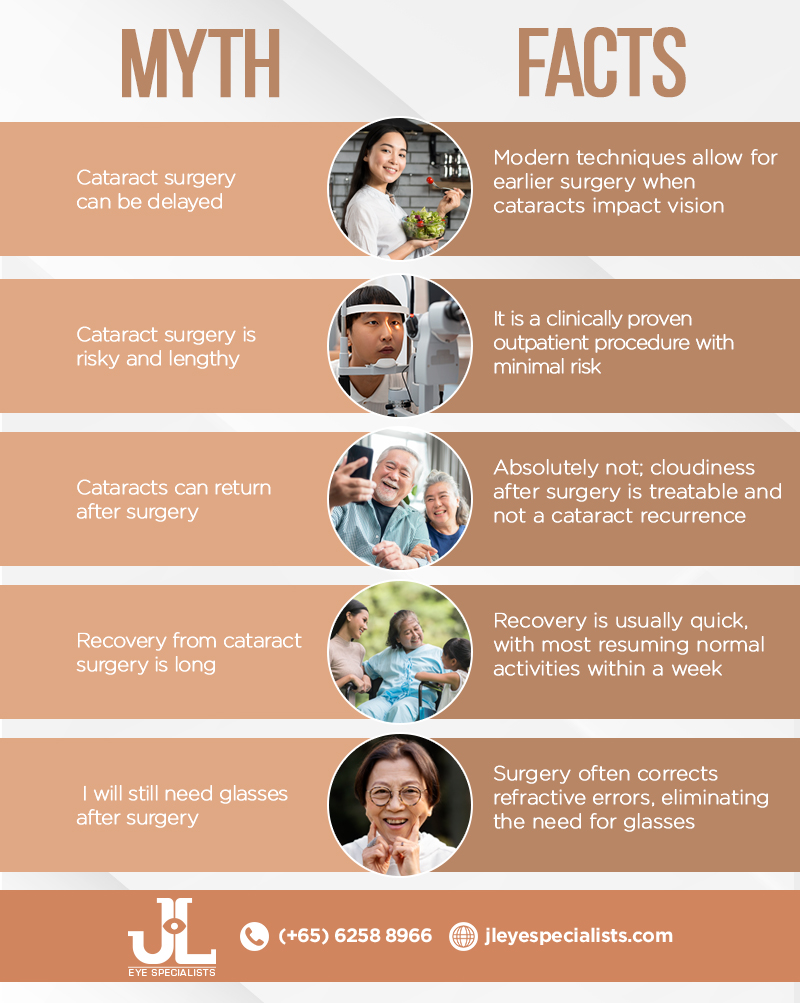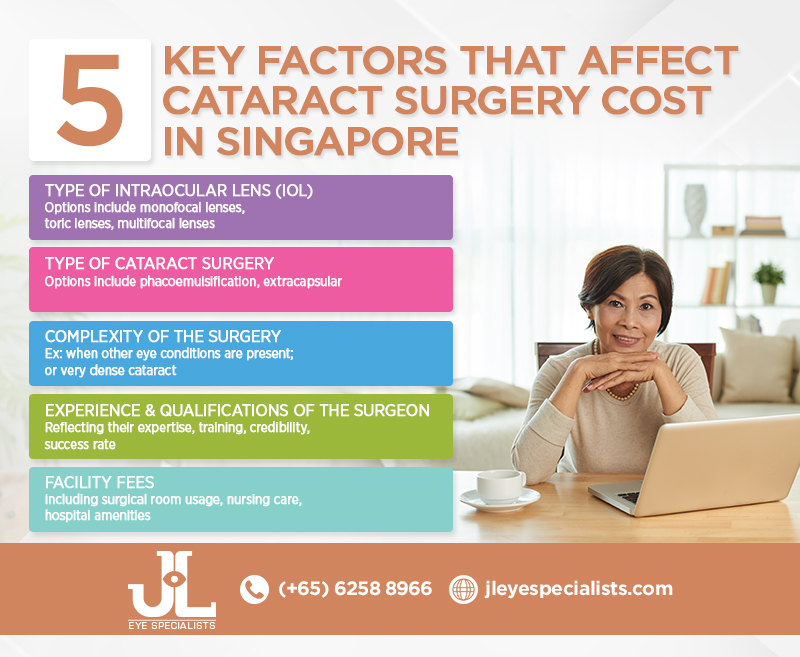42 CRUCIAL CATARACT FACTS: The Complete Guide to Cataract Surgery in Singapore

This comprehensive primer on cataract surgery in Singapore offers a detailed exploration of essential statistics, treatment options, and the latest advancements in cataract surgery. Whether you’re considering treatment or seeking to broaden your understanding, this blog provides all you need to know about this prevalent condition—so read on!
Must Know Cataract Information

Meet our Medical Director: Dr Lim Wei Kheong Jimmy
MBBS, MMed (Ophth), MRCSEd (Ophth), FRCSEd (Ophth), FAMS
7 Signs of Cataract
Top 3 Cataract Surgery Types
If you are considering cataract surgery, then the first order of business should always be a consultation with an ophthalmologist, to discuss a treatment plan that’s appropriate for your specific circumstances.
Clearing Up Misconceptions about Cataracts


What Determines the Price of Cataract Surgery
In Singapore, cataract surgery is typically covered by public and private health insurance. For expanded coverage, including higher ward classes and private hospital services, you can opt for Integrated Shield Plans (IPs). It’s crucial for patients to review their specific insurance policies for details on deductibles, co-payments, and other out-of-pocket costs. Claims for MediSave can be processed directly at hospitals, and more information is available on the MOH website.

5 Potentital Issues of Cataract Surgery
Cataract surgery is generally safe and effective, but like any surgical procedure, it can have potential complications. Here are five common complications that can occur after cataract surgery:
- Posterior Capsule Opacification (PCO): Often referred to as a secondary cataract, PCO occurs when the part of the lens capsule that remains after surgery becomes cloudy. This is the most common complication and can be treated with a quick, painless laser procedure called a posterior capsulotomy.
- Intraocular Lens Dislocation: Sometimes, the intraocular lens (IOL) implanted during surgery can shift from its intended position. This might happen soon after the surgery or years later, often requiring additional surgery to reposition or replace the lens.
- Cystoid Macular Edema (CME): CME involves fluid accumulation in the central retina (macula) after surgery, leading to swelling that can blur vision. It’s usually treatable with eye drops or injections.
- Corneal Edema: The cornea can swell due to damage during surgery, typically when the endothelial cells that pump fluid out of the cornea are affected. This condition usually resolves with topical medication, but in severe cases, it might require corneal transplantation.
- Endophthalmitis: This is a rare but serious infection that can occur inside the eye after surgery. Immediate treatment is crucial to prevent vision loss. Symptoms can include severe pain, redness, and vision reduction.
While these complications can sound concerning, the vast majority of cataract surgeries are completed successfully. To help manage expectations, watch our video now.
2 New Developments in Cataract Surgery
Cataract surgery is continually evolving, with breakthroughs that enhance both the accuracy of procedures and the quality of patient outcomes. Here are five recent developments that are shaping the future of this life-altering eye surgery
- Extended Depth of Focus (EDOF) intraocular lenses (IOLs) represent a significant advancement in IOL technology. Unlike some multifocal IOLs that can cause halos and glare in low light conditions, EDOF lenses are engineered to minimise these issues. This makes them particularly beneficial for patients with active lifestyles or specific visual demands that require sharp focus across various distances. However, EDOF IOLs may not be suitable for everyone as they work best in patients with healthy eyes except for cataracts.
- Pharmacological therapy is becoming a key strategy to address the global issue of limited access to cataract surgery. This approach primarily targets oxidative stress and the aggregation of crystallins, which are crucial in the development of cataracts. Recent research highlights the effectiveness of antioxidants and oxysterols in improving or even reversing lens opacity in cataract models. Advances in nanotechnology have improved the delivery of these treatments, although it’s still a long way off to refining the dosage, delivery mechanisms, and overall therapeutic efficacy of these pharmacological interventions for cataracts.
Cataract Surgery in Singapore
At JL Eye Specialists, we’re dedicated to providing a smooth and comforting experience for all our patients and their families, including international visitors. We can help streamline your medical journey from initial consultation and estimate costs based on your medical needs, including assisting with hospital admissions and guiding you through each step.
Our Medical Director, Dr. Jimmy Lim, specialises in cataract surgery and brings more than 20 years of expertise to his role. His distinguished career includes senior positions at Tan Tock Seng Hospital and advanced fellowships in the U.S. and Switzerland, enhancing his skills in complex cataract and corneal surgeries. Dr. Lim is also a leader in medical education and research, continuously pushing the boundaries of visual health advancements.
Schedule a consultation or call us at 6258-8966 for more information.
Related Post:
More Topics to Explore:
Relevant Services:
Our Doctor

DR. JIMMY LIM
Dr. Jimmy Lim is a top ophthalmologist for cataract eye surgery in Singapore, offering over 20 years of expertise in cataract treatment and management.
Gleneagles Medical Centre
6 Napier Road #07-10,
Singapore 258499
Phone: +65 6258 8966
Fax: +65 6258 8766

JL Eye Specialists is an ophthalmology clinic in Singapore that specialises in general ophthalmology, cornea, refractive (LASIK), and cataract surgery.
To cover the expenses that you may incur, we accept several corporate and international insurance policies. If you have any of the insurance plans at this side, please let us know when you schedule an appointment with us. For more questions, feel free to contact us at +65 6258 8966.





